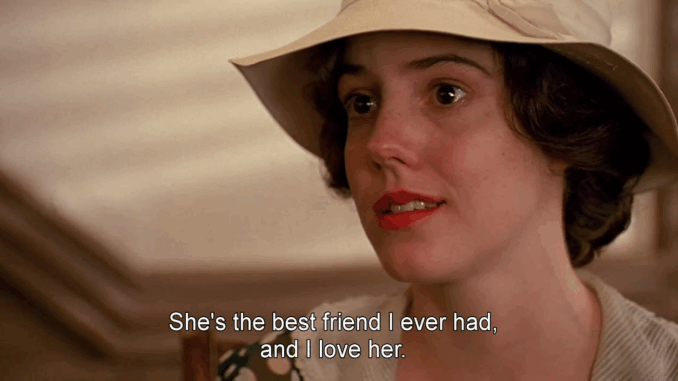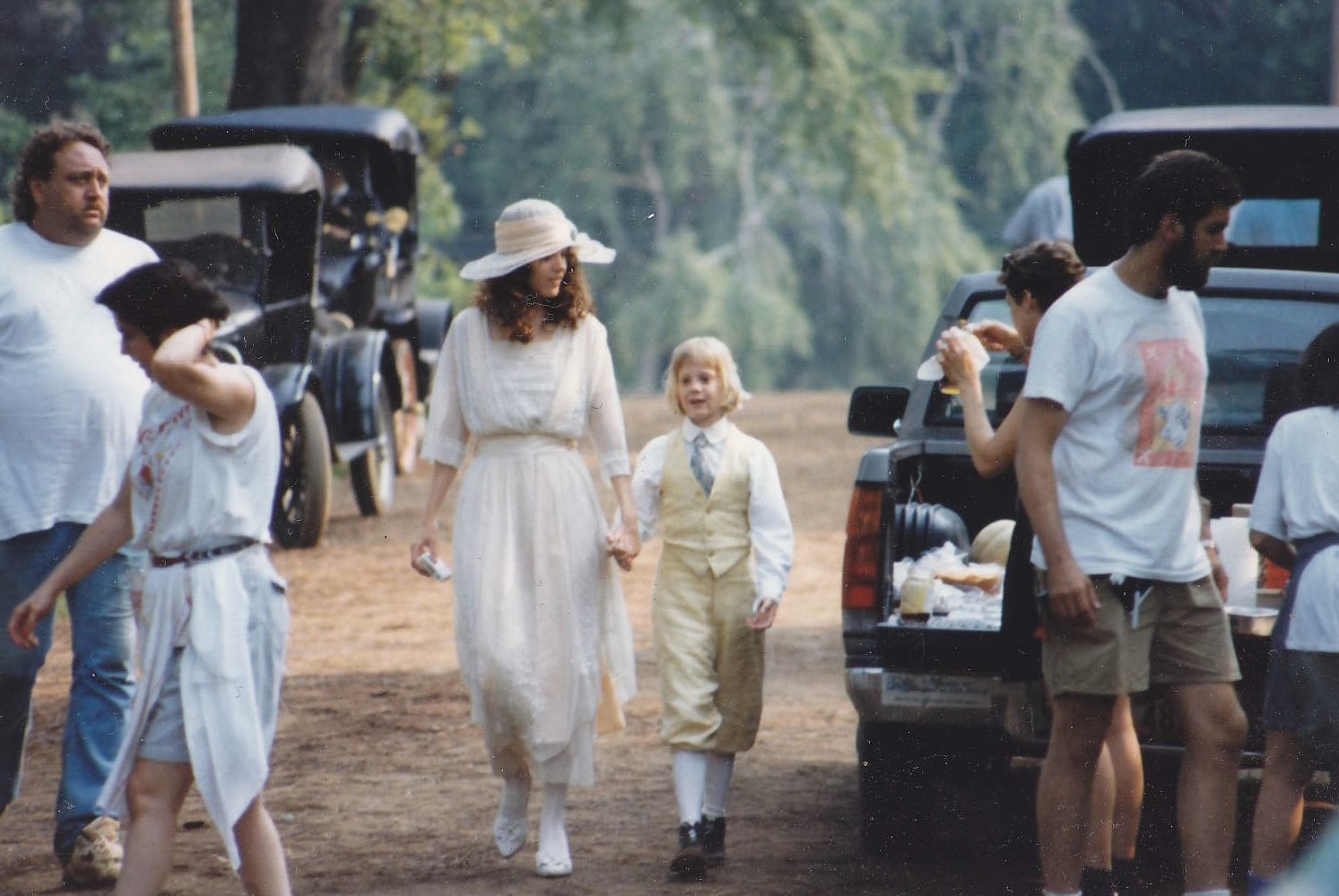
The Final Goodbye in Whistle Stop
Ruth Jamison’s funeral is one of the most heartrending scenes in Fried Green Tomatoes, layered with grief, grace, and profound emotional restraint. Though the film never loudly declares the depth of Idgie and Ruth’s relationship, the pain in this scene says everything. It is a moment not only of mourning but of deep reflection—for the characters and for the audience—on what it means to love, to lose, and to carry someone’s spirit forward.
The funeral is small, modest, and set in the rural backdrop of Whistle Stop. There are no grand eulogies or dramatic outbursts. Instead, the film chooses subtle gestures and silences to communicate the magnitude of the loss. Ruth is buried quietly, but the grief is thunderous in its stillness—especially in Idgie’s eyes.
Idgie’s Silent Devastation
Idgie stands at the graveside not as a friend or business partner, but as someone whose life has been deeply, irreversibly changed by Ruth’s presence. She doesn’t cry openly. She doesn’t scream. But her entire being is consumed by the loss. The woman who faced down trains, bees, and trials without blinking is now still, wordless, and shattered. Her silence is deafening.
This portrayal of grief speaks to how Fried Green Tomatoes handles emotion: through subtlety and understatement. Idgie doesn’t need to explain what Ruth meant to her. She’s already spent years showing it—through the café they built together, the child they raised, and the battles they fought side by side. Ruth was her home. And now that home is gone.
A Reflection on Chosen Family

The funeral also functions as a powerful reminder of the chosen family these characters built. In the conservative South of the 1930s, Ruth and Idgie created a life together outside traditional norms. They ran a business, raised a child, and offered refuge to outsiders. Their family wasn’t defined by blood—it was defined by love, loyalty, and sacrifice.
This non-traditional family mourns together at Ruth’s grave: Idgie, Sipsey, Big George, and even Smokey Lonesome. Each character carries a piece of Ruth with them. They are not merely saying goodbye to a friend—they are losing a sister, a mother figure, a partner, a guide. The scene is filled with quiet testimony to how much Ruth held them all together.
The Legacy Ruth Leaves Behind
Though Ruth’s physical life ends here, her spirit endures. She has transformed those around her. Her love gave Idgie purpose. Her vulnerability taught others to be strong. Even in death, she brings clarity. This moment marks a turning point in the film: Ruth’s passing forces those left behind to find meaning and direction without her.
And they do. Idgie continues to live, not just in memory of Ruth, but in honor of the life they built together. She doesn’t close herself off—she keeps the café open, she remains part of the community, and she tells stories that keep Ruth alive. Her grief doesn’t make her smaller; it deepens her.
A Quiet, Feminist Statement on Loss
What’s revolutionary about Ruth’s funeral is how it centers women’s lives and love without ever needing to label it. There are no husbands mourning her. There are no traditional family tropes. Instead, we witness the emotional center of the film—two women who defied societal norms, held each other up, and built something beautiful together.
The funeral isn’t just for Ruth—it’s for every unconventional love story that had to remain quiet. It’s for every woman who found her soulmate in another woman, in a world that wouldn’t let her say it aloud. Fried Green Tomatoes gives us that space—gentle, dignified, and filled with feeling.
A Farewell, but Not the End
Though Ruth’s body is buried, her story is not. The final scenes of the film make clear that her memory continues to shape the lives around her. From the café’s warm meals to the stories passed down through generations, Ruth’s legacy is stitched into the very soul of Whistle Stop.
Idgie never truly says goodbye. In the world of Fried Green Tomatoes, death doesn’t erase love—it only transforms it. Ruth lives on, not in ghostly form, but in the choices Idgie makes, in the sweetness served at the café, and in every woman who dares to live boldly.
